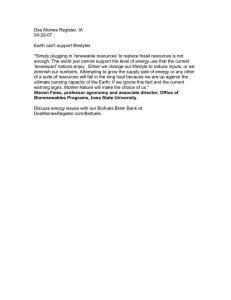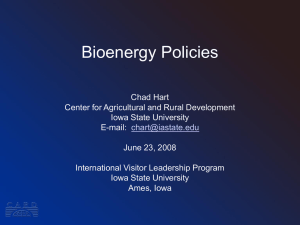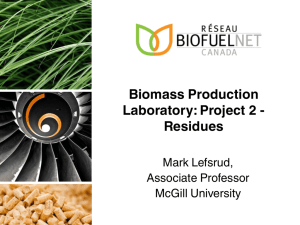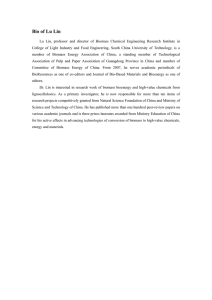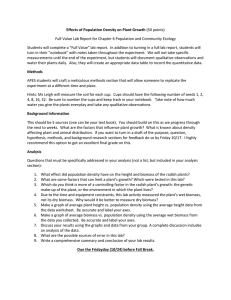Wallace's Farmer, IA 10-24-07 CAST Releases Report on Cellulosic Biomass
advertisement
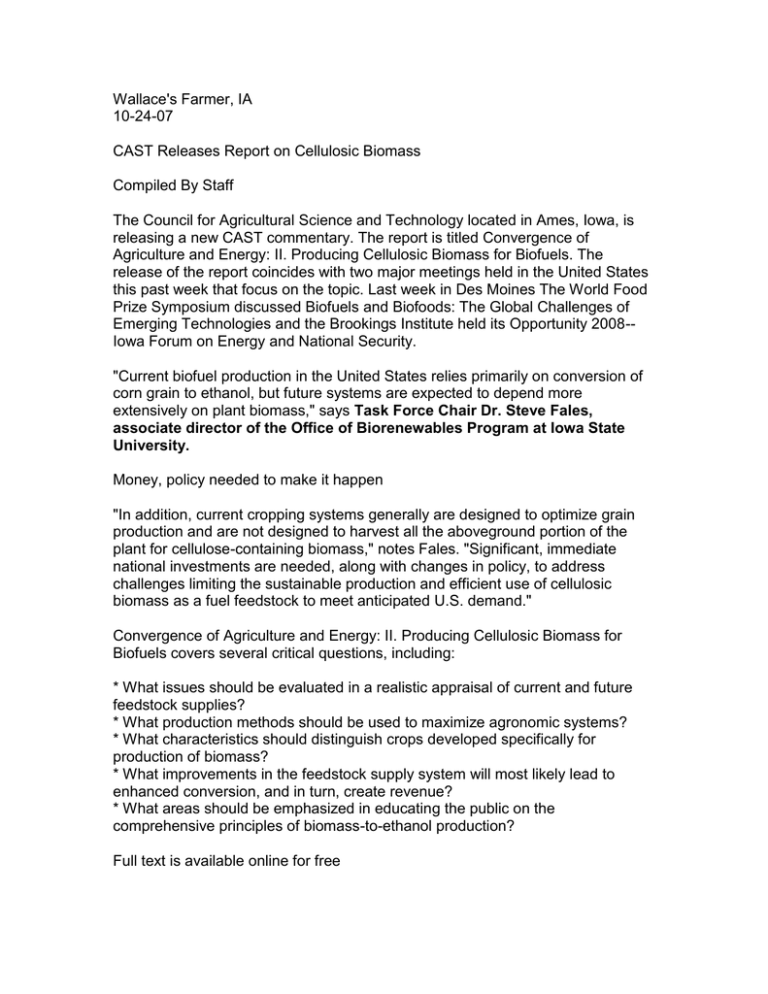
Wallace's Farmer, IA 10-24-07 CAST Releases Report on Cellulosic Biomass Compiled By Staff The Council for Agricultural Science and Technology located in Ames, Iowa, is releasing a new CAST commentary. The report is titled Convergence of Agriculture and Energy: II. Producing Cellulosic Biomass for Biofuels. The release of the report coincides with two major meetings held in the United States this past week that focus on the topic. Last week in Des Moines The World Food Prize Symposium discussed Biofuels and Biofoods: The Global Challenges of Emerging Technologies and the Brookings Institute held its Opportunity 2008-Iowa Forum on Energy and National Security. "Current biofuel production in the United States relies primarily on conversion of corn grain to ethanol, but future systems are expected to depend more extensively on plant biomass," says Task Force Chair Dr. Steve Fales, associate director of the Office of Biorenewables Program at Iowa State University. Money, policy needed to make it happen "In addition, current cropping systems generally are designed to optimize grain production and are not designed to harvest all the aboveground portion of the plant for cellulose-containing biomass," notes Fales. "Significant, immediate national investments are needed, along with changes in policy, to address challenges limiting the sustainable production and efficient use of cellulosic biomass as a fuel feedstock to meet anticipated U.S. demand." Convergence of Agriculture and Energy: II. Producing Cellulosic Biomass for Biofuels covers several critical questions, including: * What issues should be evaluated in a realistic appraisal of current and future feedstock supplies? * What production methods should be used to maximize agronomic systems? * What characteristics should distinguish crops developed specifically for production of biomass? * What improvements in the feedstock supply system will most likely lead to enhanced conversion, and in turn, create revenue? * What areas should be emphasized in educating the public on the comprehensive principles of biomass-to-ethanol production? Full text is available online for free CAST Executive Vice President John Bonner concludes, "To advance agroecosystem production beyond that achievable with existing practices, new knowledge, new systems, and new genetic resources must be created, and the environment for continued discovery must be ongoing. CAST is pleased to present this document as part of the ongoing biofuels discussion." The full text of Convergence of Agriculture and Energy: II. Producing Cellulosic Biomass for Biofuels (CAST Commentary QTA 2007-2) is available online without charge at the CAST website (www.cast-science.org), along with many of CAST's other scientific publications. CAST is an international consortium of 38 scientific and professional societies. It assembles, interprets, and communicates credible science-based information regionally, nationally, and internationally to legislators, regulators, policymakers, the media, the private sector, and the public.
